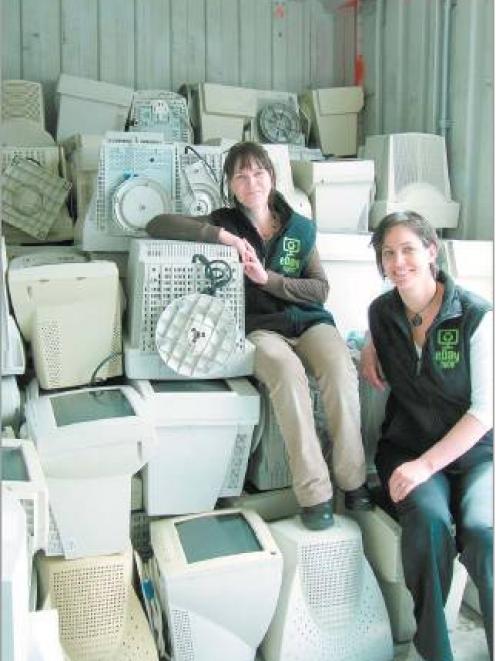
EDay is a community initiative designed to raise awareness of the hazardous nature of e-waste while offering an easy way for people to dispose of unwanted computer items such as hard-drives, printers, ink cartridges and monitors.
Dunedin's e-waste drop-off point will be at the NZWH Woolstore on Orari St, between 9am and 3pm this Saturday, October 4.
EDay Dunedin co-ordinator Roslyn Saunders said the event was not just about computer recycling, but educating people not to dump their e-waste in landfills.
‘‘People should get involved if they care about the environment, wildlife and human health,'' Ms Saunders said.
‘‘Land-filling e-waste stores potentially toxic waste rather than allowing for recovery and reuse of valuable materials.
‘‘EDay is a simple, free and effective way to dispose of your household computer waste and mobile phones in an environmentally sustainable way.''
Based on national statistics and Dunedin's population, eDay organisers are anticipating about 900 cars bringing 59 tonnes of e-waste to Dunedin's first eDay.
Dunedin's eDay event will cost about $90,000, with the majority of the funding provided at a national level and the shortfall covered by the Dunedin City Council.
Globally, e-waste is the fastest-growing waste being sent to landfills and it has potentially hazardous consequences for the environment and human health.
Lead found in computer equipment is highly toxic for plants and animals, and can damage the nervous system. Mercury, which is also found in computer equipment, is also highly toxic and can cause brain damage in unborn children.
People wanting to get involved should erase all data from their computer's hard drive and remove any discs and PC cards. If disposing of a mobile phone it is important to make sure it is disconnected, all content has been erased and the Sim card has been removed.
All equipment will be sorted on the day, before being shipped to recycling plants within New Zealand and overseas where reusable material such as copper, plastics, unleaded glass and steel will be recycled.
All mobile phones that cannot be reused will be sent to Singapore for recycling. Around 90 per cent of materials used in mobile phones can be recycled. The aim of eDay is to divert 1000 tonnes of e-waste from landfills.
In conjunction with Otago Polytechnic, Dunedin schools have been given the opportunity to dump their e-waste before the official eDay drop-off.
Story by Michelle McCullough
- For more details go to www.eday.org.nz












